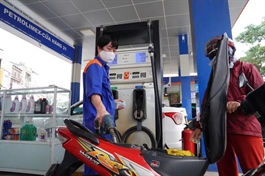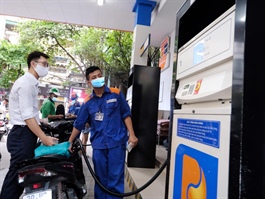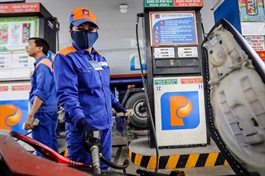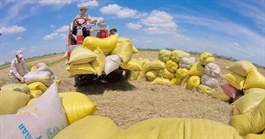Vietnam to keep importing oil due to domestic refinery woes
Vietnam to keep importing oil due to domestic refinery woes
Vietnam will keep importing gasoline and diesel until Nghi Son, one of the country's two refineries, resumes normal operation, Minister of Industry and Trade Nguyen Hong Dien told lawmakers on March 16 at a question-and-answer session of the National Assembly.
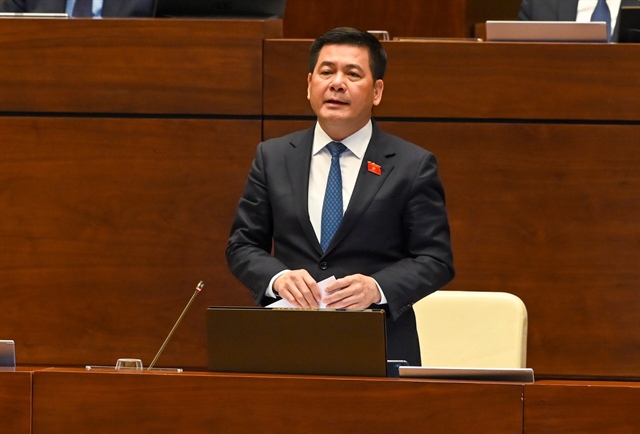
Minister of Industry and Trade Nguyen Hong Dien answers NA deputies’ questions on March 16 |
Dien, speaking at the 15th-tenure National Assembly Executive Committee’s ninth session, was responding to question regarding his ministry’s management of petrol and oil supply given Nghi Son Refinery’s continued problems and inability to ensure sufficient domestic supply.
Minister Dien noted that countries around Vietnam do not have oil refineries but do not lack gasoline, and countries with oil refineries cannot reduce their petrol and oil price much below global prices without applying certain tax policies or a price stabilization fund.
“If the world gasoline price continues to rise, the Ministry of Industry and Trade will propose to reduce other taxes and fees further. When all the tax tools are used, but the petrol prices remain high, the ministry will propose using welfare funds to support the poor and businesses that use a large volume of petrol products,” Dien said.
Assured petrol supply
The minister explained that global gasoline prices spiked sharply because of supply disruptions in some large oil-producing nations and the impact of the Russia-Ukraine war. While world oil prices rose 40-60 percent, domestic supply encountered difficulty because the Nghi Son Oil Refinery, which supplies 35 percent of the country's gasoline, reduced capacity. There were many solutions to ensure sufficient domestic supply, including enabling enterprises to double petrol imports. “Petrol is never in short supply,” Dien assured lawmakers.
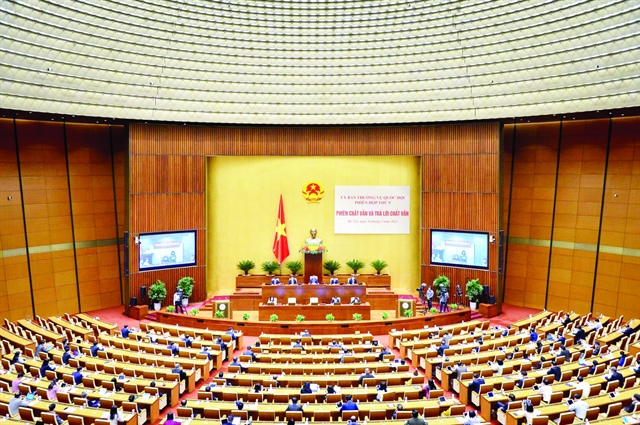
March 16 question-and-answer session of the National Assembly |
Dien said that Nghi Son Oil Refinery faced financial difficulties and some internal problems, and thus could not afford to import crude oil to produce finished petroleum products. According to a report by Nghi Son Refining and Petrochemical LLC, since the beginning of January 2022, the factory has reduced its capacity to 80 percent and then to 55-60 percent, with a commensurate decline in delivery to domestic petroleum wholesalers. The ministry has urged refinery owners - Petrovietnam, which owns a 25.1 percent stake and the other two main shareholders, Japan's Idemitsu and Kuwait Petroleum International – to fulfill their market supply commitments.
Until PVN and the Committee for Management of State Capital at Enterprises (CMSC) confirm that Nghi Son Refinery can fulfill its supply commitments, the Ministry of Industry and Trade will continue importing petroleum, Dien said.
According to the Ministry of Industry and Trade, Nghi Son Oil Refinery has no plans to supply petroleum to key wholesalers in April and May, as well as no detailed production plan for the period after May.
On February 22, the Ministry of Industry and Trade worked with PVN to assess Nghi Son Refinery’s petroleum production and supply capacity, concluding that Nghi Son Refinery would not participate in petroleum supply for the domestic market in the second quarter of 2022.
Easing produce congestion
Referring to the persistent produce congestion at northern border crossings, Dien said that the Ministry of Industry and Trade has discussed measures with China to speed up customs clearance, initially by forming common green zones at border gates to ease goods circulation. Consistent procedures on goods delivery and reception will be agreed between the two sides, he said, stressing the need for localities having border gates to support traders and owners of transport vehicles. He pointed out that the ineffective strategy regarding farm produce production and sale is the main reason for the congestion.
Dien said his ministry has advised the Ministry of Agriculture and Rural Development to adjust farming and breeding planning schemes and guide agricultural firms on how to meet foreign customer demand.
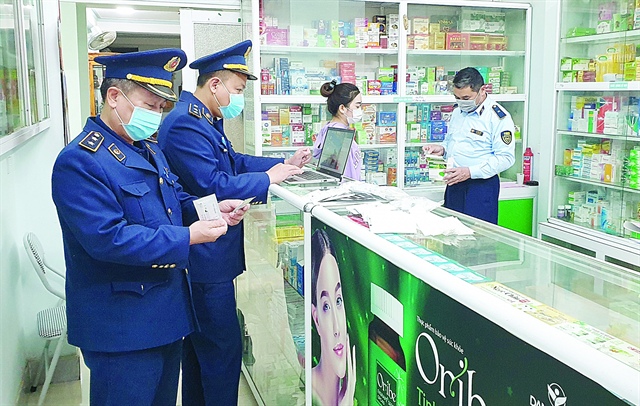
Market management teams strengthen the fight against commercial fraud, including counterfeit goods |
The Ministry of Industry and Trade recently worked with the Ministry of Agriculture and Rural Development on providing information and training for business associations and produce manufacturers, helping them enlarge production scales and shift from unofficial border trade to official trade.
However, this is a long-term process. In the short run, efforts must be made to ease goods congestion at border crossings. The two ministries are still making efforts to discuss the problem with China.
Stressing China’s high quality standards, Dien urged Vietnam growers and traders to further improve the quality and standards of agricultural products.







